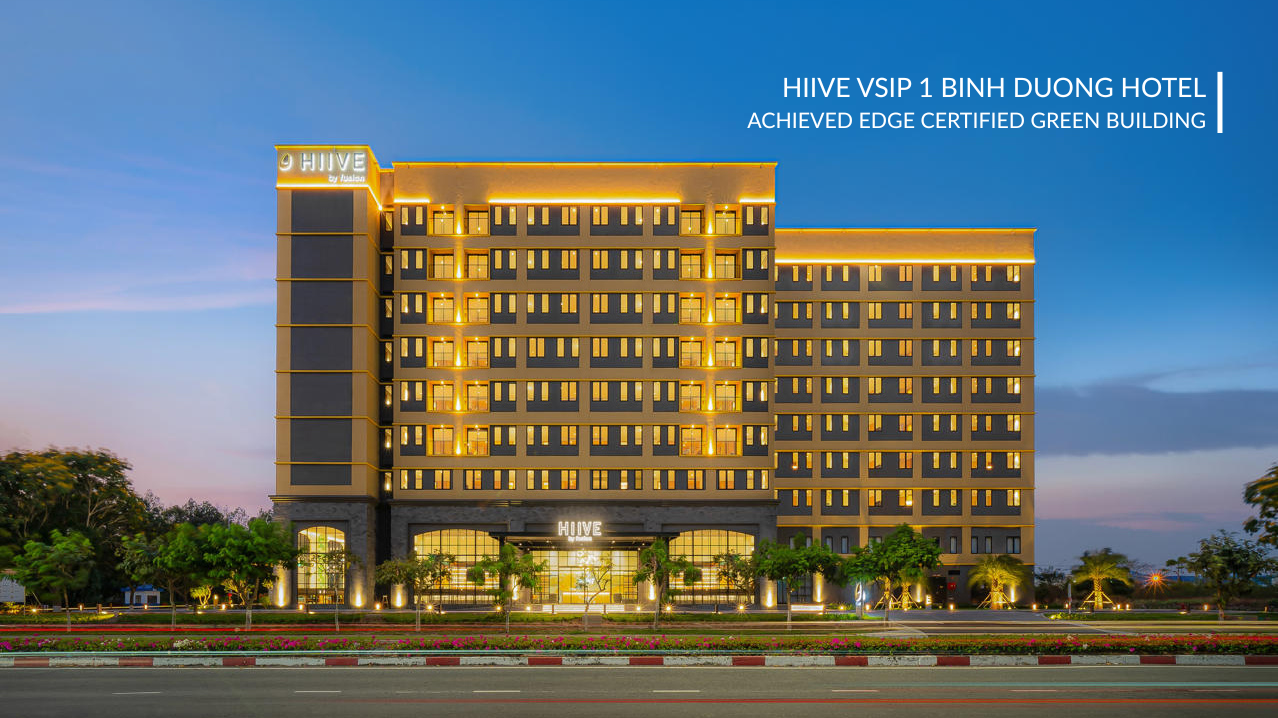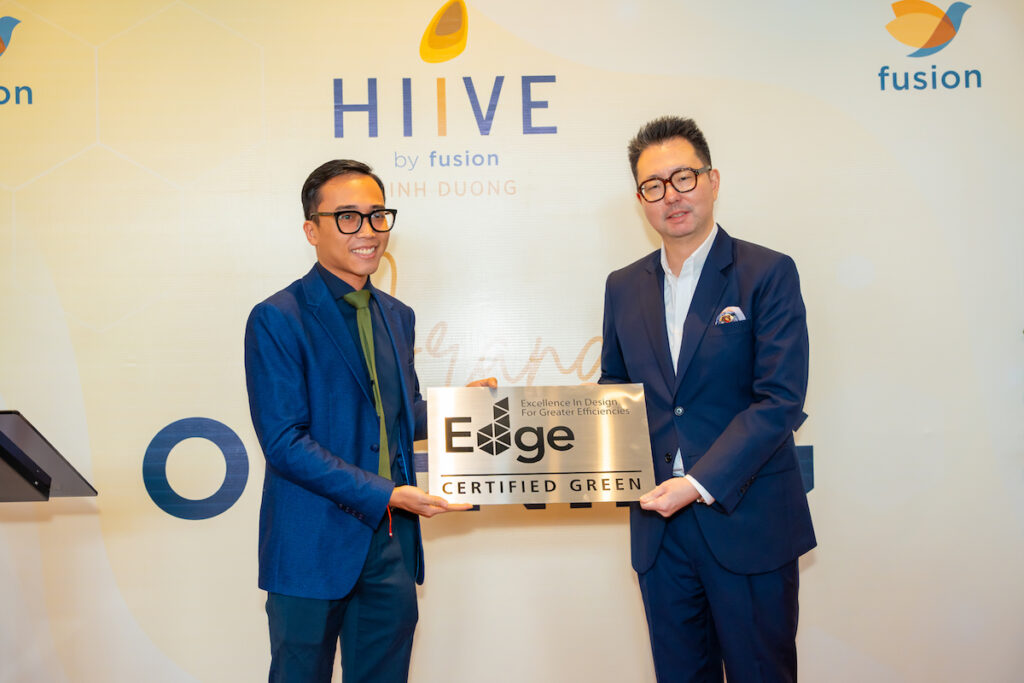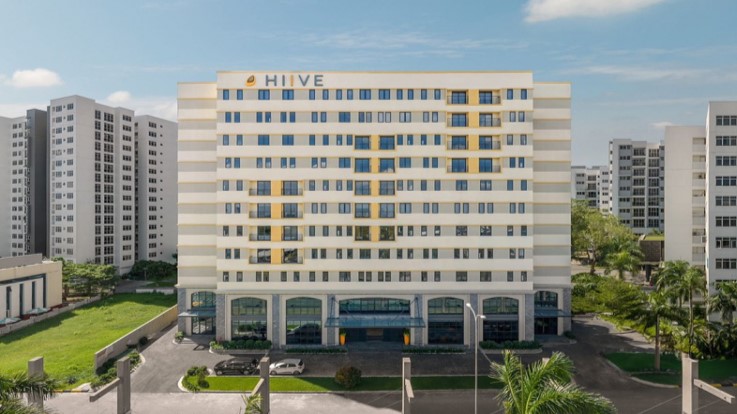
Hospitality Embraces Green Buildings: When Expert Accommodation Becomes a Promising Market
News
As foreign investment and industrial zones continue to expand across Vietnam, a new demand is quietly emerging: high-quality, environmentally friendly accommodation for international experts and professionals.
At the same time, the Green Building movement is no longer merely a “branding advantage,” but has become a new investment standard—helping property owners enhance asset value and meet the growing expectations of global tenants.
The FDI wave and the rise of expert accommodation
According to the Ministry of Planning and Investment, Vietnam currently hosts over 400 industrial parks and economic zones, attracting millions of workers and more than 200,000 foreign experts. Provinces such as Binh Duong, Bac Ninh, Hai Phong, Hung Yen, and Dong Nai are witnessing a sharp rise in demand for international-standard housing—properties located near industrial areas but offering high living quality and environmental comfort.
While the premium apartment rental market in major cities is reaching saturation, the industrial hospitality segment—accommodation for experts—still faces a shortage of internationally compliant, sustainable, and energy-efficient projects.
This represents a “green gap” in the market, where visionary investors can move ahead by integrating Green Building standards right from the design and operation phases.
Hospitality and Green Buildings – the inevitable intersection
Between 2020 and 2030, global investment trends have shifted decisively toward green real estate. The International Finance Corporation (IFC) estimates that the green building market in Vietnam could reach over USD 80 billion by 2030, with hospitality and accommodation accounting for a significant share.
International certification systems such as LEED and EDGE are no longer limited to offices or factories—they are perfectly applicable to hospitality projects, thanks to their clear evaluation criteria, including:
- Energy efficiency (HVAC, lighting, insulation materials)
- Water conservation (low-flow fixtures, greywater reuse systems)
- Waste management and eco-friendly materials
- Indoor air quality and thermal comfort
According to studies by the U.S. Green Building Council (USGBC), a LEED-certified hotel can achieve up to 25% energy savings and 30% water savings, while also boosting occupancy rates due to its sustainable brand image and appeal to long-term tenants.
For foreign professionals, the “green” factor goes beyond aesthetics—it represents an international living standard, closely linked to health, comfort, and environmental awareness.
Emerging trend: “Green accommodation within industrial zones”
A growing trend is the development of green accommodation complexes adjacent to industrial or high-tech parks, offering a full range of lifestyle amenities—fitness, wellness, co-working, and recreation facilities.
Localities such as Hung Yen, Hai Phong, Bac Giang, and Dong Nai are actively promoting such projects, aiming not only to improve living conditions for foreign experts and engineers but also to create sustainable communities around industrial hubs.
Particularly as Vietnam has committed to achieving Net Zero emissions by 2050, the integration of green living infrastructure with sustainable manufacturing facilities is becoming a comprehensive model for industrial sustainability—where living and working environments share the same goal of reducing emissions and enhancing environmental quality.
Green Hospitality in the Heart of Industrial Parks
Amid the hospitality sector’s green transformation, the HIIVE by Fusion hotel chain has emerged as a pioneering model. Developed to serve international professionals and business travelers working in industrial zones, the project promotes a modern, comfortable, and environmentally friendly lodging experience.
In particular, HIIVE Hotel at VSIP 1 (Binh Duong) has achieved EDGE Certified green building status, with a total gross floor area of 11,000 m². For this project, ISD Engineering—a leading green building consultancy in Vietnam—served as the EDGE certification consultant.
The HIIVE VSIP 1 hotel features 172 international-standard rooms, offering services tailored to the needs of business guests, including conference halls, meeting rooms, integrated co-working spaces, as well as diverse recreational and dining amenities.
Learn more from the HIIVE Hotel at VSIP 1 article: [Link]
When Green Hospitality Becomes a Sustainable Growth Strategy
As major industrial zones like Binh Duong, Bac Ninh, Dong Nai, and Hai Phong continue to attract foreign direct investment (FDI), demand for accommodation among foreign experts is rapidly increasing. Investing in LEED- or EDGE-certified green buildings not only optimizes operational efficiency but also strengthens competitiveness and enhances international brand positioning.
In the near future, green-certified buildings will no longer be the choice of early adopters—they will become the development standard of Vietnam’s hospitality sector. Consulting firms like ISD Engineering are playing a pivotal role in realizing this vision—bringing Vietnam closer to a sustainable, eco-friendly hospitality ecosystem aligned with global trends.
ISD Engineering is Vietnam’s leading green building consultancy, pioneering the integration of international sustainability standards into practice. Notably, ISD Engineering is the first company in Vietnam to be simultaneously recognized as a LEED Proven Provider by USGBC/GBCI—affirming its outstanding capability, credibility, and consistent excellence in delivering LEED-certified projects—and an EDGE Premier Service Provider by IFC/World Bank Group, a prestigious designation awarded to organizations demonstrating exceptional expertise and performance in EDGE certification.
Contact ISD Engineering today for professional green building certification consultation.
- Posted on
- November 17, 2025



